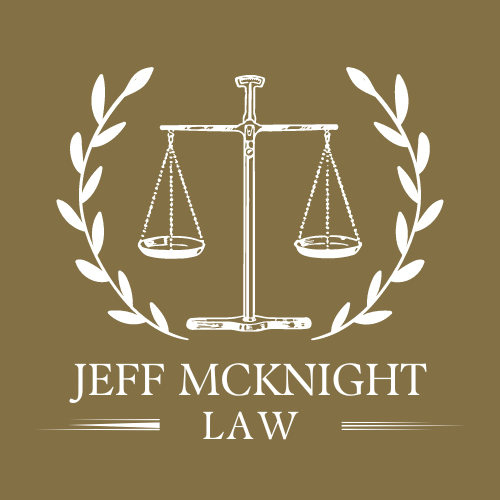
At JeffMcKnightLaw, we are experienced divorce lawyers, but we understand how important it is to keep your property safe from government claims. I often get asked, “What property is exempt from eminent domain in Texas?” It’s a topic that sparks much concern, and the answers might surprise you. Stay with me as we explore which properties can steer clear of this legal power.
As demonstrated by the Texas Constitution Article I, Section 17, homestead properties are exempt from eminent domain in Texas. This means that primary residences cannot be taken by the government for public use. Additional exceptions include places of worship and cemeteries.
Understanding Eminent Domain in Texas
In Texas, eminent domain is a governmental power that allows the state to transform private land into public assets.
To simplify the process, the government has to pay property owners fairly when taking their land. Here’s how it works:
- Notify the property owner.
- Appraise the property’s value.
- Negotiate a fair price.
If they can’t agree, the government might take the case to court to get the property.
There are rules for this process. The property must be used for a public purpose, not for private benefit. Property owners can challenge the government’s decision in court. Basically, it’s very important for property owners to know their rights and to get legal advice if the government wants their land.
Eminent domain is a hot topic because it affects both public interests and personal property rights. The government has to follow strict steps to make sure everything is fair and clear.
Knowing how eminent domain works in Texas is important for both property owners and the government to follow the law properly.
Types of Property Exempt from Eminent Domain
Properties such as schools, churches, and wildlife reserves are often exempt from eminent domain due to their essential public functions and legal protections.
So to speak, certain types of properties are usually protected from being taken by the government. These can include churches, public parks, historical sites, and primary homes. Sometimes, land owned by Native American tribes or government bodies is also safe from such actions. The rules about which properties are safe come from legal guidelines that try to balance owners’ rights with public needs.
So to speak, even with these protections, the government can still take many types of properties for public projects if they pay the owners fairly. The exact rules about which properties are exempt can change depending on where you are and the laws in that area. It’s important for property owners to know their rights and get legal help if they are faced with the government taking their property, to make sure they are treated fairly.
Legal Protections for Texas Property Owners
Texas property owners benefit from robust legal protections encompassing eminent domain, property taxes, and landlord-tenant relationships.
To outline briefly, eminent domain means the government can take private property for public use, but they must pay the owner fairly. Local governments collect property taxes, and you can dispute them if they are wrong.
In the most basic sense, landlord-tenant laws set the rules for rental agreements, covering things like evictions and security deposits. Property owners also have rights concerning deeds, zoning rules, and homeowners’ associations. Property owners should know their legal rights to protect their property.
How to Claim Eminent Domain Exemptions
Understanding local laws is crucial to claim eminent domain exemptions.
In essence, talk to a real estate lawyer to look at your specific case. Show proof to back up your claim, like documents showing you own the property or proof of financial struggles. Be ready to discuss and negotiate with the government or entity trying to take your land. If needed, go to court hearings to present your case.
Simply put, know that getting exemptions from eminent domain is rare and might not always work. Keep track of important dates and rules to make sure your claim is looked at. Organize all your communications and paperwork for easy access. Prepare yourself for a possibly long and complicated legal path.

Key Cases of Eminent Domain Exemption in Texas
In Texas, certain notable eminent domain exemption cases highlight the intricate balance between private property rights and public use.
In other wordsin Texas, there are important examples where property owners are not required to give up their land through eminent domain.
One example is the case City of Dallas v. Clark. The Texas Supreme Court decided that a city cannot take property using eminent domain unless it is for a true public purpose. Another case is State v. City of Houston, where the Texas Court of Appeals said that a city cannot use eminent domain if it’s not for the public’s benefit.
Simply putin yet another case, Texas Rice Land Partners, Ltd. v. Denbury Green Pipeline-Texas, LLC, the Texas Supreme Court ruled that a private company cannot use eminent domain to build a pipeline unless it serves the public.
These cases show that property owners in Texas can fight against eminent domain if their property is not being taken for a legitimate public reason. These rulings have set important examples for property rights in Texas and help guide future cases involving eminent domain.
Rounding it Up
In Texas, certain properties are exempt from eminent domain, including places of worship, historic sites, and primary residences.
What JeffMcKnightLaw is supporting the idea of is, these exemptions provide protection for specific types of properties that hold significant cultural or personal value to individuals and communities. Ultimately, these exemptions help to safeguard important landmarks and homes from being taken for public use.






